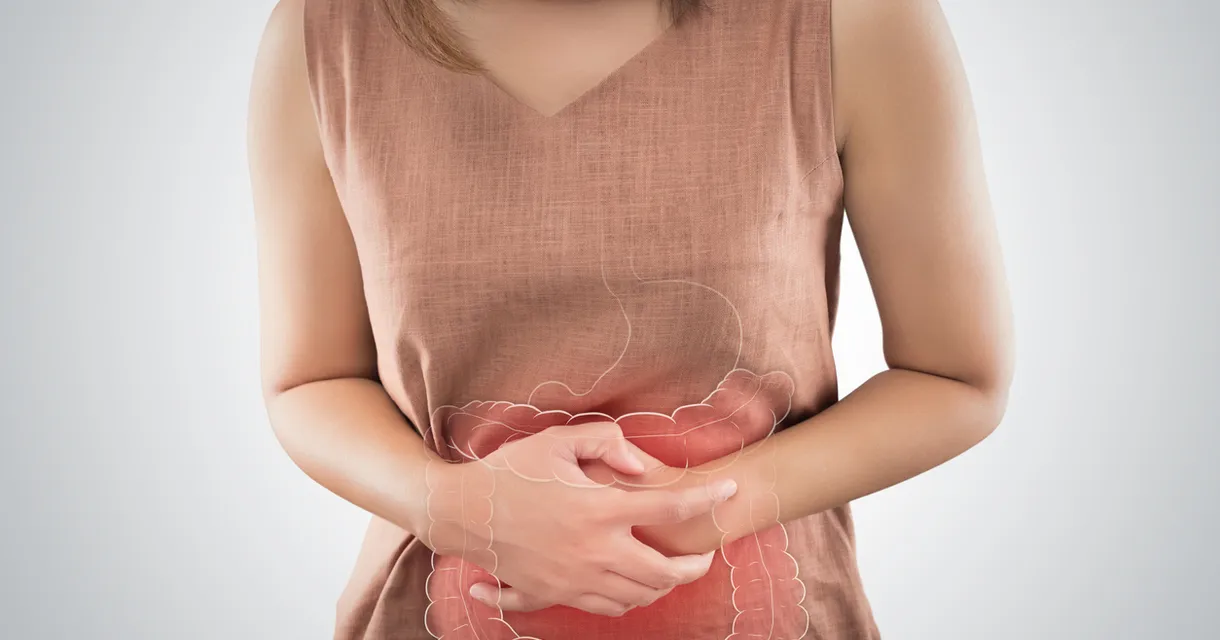What is IBS?
IBS stands for Irritable Bowel Syndrome. It is a condition that affects the digestive system, resulting in symptoms such as stomach cramps, bloating and diarrhea. This can cause extreme discomfort to sufferers. IBS has no known cure and is usually a lifelong problem, but with the right treatment plan it can be manageable with symptoms presenting themselves in waves often lasting days, weeks or even months at a time.
What are the Symptoms of IBS?
IBS symptoms are wide ranging and differ in severity from person to person. The primary symptoms of IBS are:
- Stomach pain and cramps - cramps or pain usually occurs following a meal or snack and will subside after doing a poo
- Diarrhoea - you may feel the sudden need to poo and it may have a liquid consistency
- Bloating - your stomach may swell and feel uncomfortable
- Constipation - opposite to diarrhoea, you may find it difficult to poo and feel that you are unable to fully empty your bowels
IBS can also cause a number of other symptoms:
- Flatulence - you may find that you pass wind more often
- Mucus in your stool
- Fatigue
- Nausea
- Backache
- Urinary issues such as the sudden urge to urinate, urinating frequently or feeling that you are unable to empty your bladder properly
- Incontinence (you may not be able to control when you poo)
If you are experiencing any of the symptoms above and feel that you may be suffering from IBS, you should visit your GP in order to be diagnosed.
You should see your GP immediately if you experience any of the following symptoms:
- Rapid weight loss for no reason
- bleeding from your bottom or bloody diarrhoea
- a hard lump or swelling in your stomach
- shortness of breath, noticeable heartbeats (palpitations) and pale skin
These symptoms could be a sign of a more serious underlying issue.
What Causes IBS?
The cause of IBS has not yet been determined however it has been linked to a number of digestive issues. It has been suggested that IBS symptoms occur when food passes too quickly or too slowly through the gut, or due to oversensitive nerves within the gut. Stress and a family history of IBS have also been linked to the development of the condition.
IBS Treatments
As the cause of IBS is not known, there is no set treatment for the condition. There are a number of lifestyle changes and medications that can be taken to help you manage and ease IBS symptoms.
IBS relief products are also available at pharmacies to help relieve symptoms. Buscopan IBS Relief 10mg Tablets contain hyoscine butylbromide. Designed to relieve the abdominal cramps associated with Irritable Bowel Syndrome, it belongs to a group of medicines called antispasmodics. It works by relaxing the cramping muscles of your bowel. Colpermin Capsules also fall into this group of medicines. There are also medications, such as the Imodium Instant Melts Pack of 18, which help to alleviate diarrhoea associated with IBS.
Diet and IBS Symptoms
Certain foods have been linked to IBS symptoms, acting as a trigger. Making some lifestyle and diet changes can therefore help in managing your IBS.
Diet Tips for IBS
- Cook using fresh ingredients where possible so you know exactly what is in your food
- Keep a food diary, keeping track of which food trigger your symptoms so that you know to avoid or limit them in future
- Do not delay or skip meals
- Do not eat quickly
- Avoid fatty, spicy and processed foods as these can irritate your digestive system
- Do not eat more than 3 portions of fresh fruit a day (a portion is 80g)
- Do not drink more than 3 cups of tea or coffee in a day
- Do not drink lots of alcohol or fizzy drinks
Whilst the above are general diet rules, there are also a number of IBS diet tips which depend on your current symptoms. You can discuss your diet with your doctor or a nutritionist to help identify what foods or drinks could be contributing to your IBS symptoms.
Diet Tips to Relieve Diarrhoea
- Reduce your intake of high-fibre foods such as brown bread, brown rice, nuts and seeds
- Avoid products containing a sweetener called sorbitol
Diet Tips to Relieve Constipation
- Drink plenty of water to help make your stool softer
- Increase how much soluble fibre you eat – good foods include oats, pulses, carrots, peeled potatoes and linseeds
Diet Tips to Relieve Cramps and Bloating
- Eat oats regularly
- Eat up to 1 tablespoon of linseeds a day
- Avoid hard to digest foods such as cabbage, broccoli, cauliflower, brussels sprouts, beans, onions and dried fruit
- Avoid products containing a sweetener called sorbitol
Further Tips for Managing IBS
- Relax - finding a way to de-stress may help as IBS symptoms have previously been linked to high stress levels
- Exercise - exercise is thought to be a way to reduce stress as endorphins are released during and after working out. This may help manage your stress levels in a productive way which, in turn, could help relieve IBS symptoms
- Probiotics - probiotics help to restore the natural balance of bacteria in your gut. Speak to your pharmacist or doctor to find out if probiotics are a good option for you
For further information on IBS, visit the NHS website, or speak to your GP. The products mentioned in this article may not be appropriate for you so it is important to always read the box, leaflet and ingredients before use.
Browse our range of IBS relief products online today. For product information or queries please do not hesitate to get in touch with us or visit us at one of our local branches.
Sources
https://www.nhs.uk/conditions/irritable-bowel-syndrome-ibs/
https://www.nhs.uk/conditions/irritable-bowel-syndrome-ibs/symptoms/
https://www.nhs.uk/conditions/irritable-bowel-syndrome-ibs/getting-diagnosed/
https://www.nhs.uk/conditions/irritable-bowel-syndrome-ibs/diet-lifestyle-and-medicines/
https://www.nhs.uk/conditions/irritable-bowel-syndrome-ibs/further-help-and-support/
